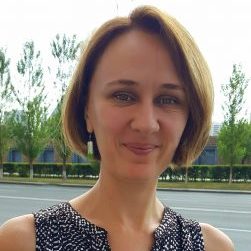
Research Interest
Dr. Olga Potanina’s research interests are in the typological studies of indigenous languages of Siberia, morphology and syntax, language contact, language change, and language documentation.
Dr. Olga Potanina is a Linguistics Instructor at the Department of Languages, Linguistics, and Literatures at Nazarbayev University. She holds a PhD degree (“Kandidat Nauk”) in Comparative, historical and typological linguistics received in Tomsk (Russia) in 2007. She received her MA in English Philology and Teaching English and German as foreign languages from Tomsk State Pedagogical University. Dr. Potanina has 19-year teaching experience, 17-year international research experience and she has expertise in teaching Linguistic courses to undergraduate and graduate students. As an active researcher she is successfully incorporating the results of her own research and the latest achievements in linguistic studies into the coursework and is teaching students from her own experience how to collect and analyze language data.
As a graduate student in 2003-2004 she was a Fulbright graduate fellow at the University of New Mexico (USA) where she attended courses in Morphology, Field Linguistics and Grammaticalization and did research under the supervision of one of the leading experts in morphology, phonology and language evolution Prof. Joan Bybee. In 2013 at Western Washington University she attended the course “Nomads of Eurasia” taught by Prof. Edward Vajda, a leading researcher in the field of indigenous studies in Northern and Central Eurasia and North America. She did research and attended seminars at the leading institutions in the field of typology and general linguistics: Max Plank Institute of Evolutionary Anthropology in Leipzig (2005), University of Helsinki (2008), University of Leipzig (2010), University of Vienna (2009), Tokyo University of Foreign Studies (2012).
She has 22 article-size publications and authors two coursebooks for students.
- LLL-131 Introduction to Linguistics
- LLL-277 Language Diversity and Language Universals.



